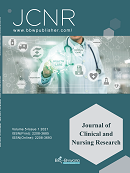Abstract
Bacterial colonization is established by direct contact with maternal microorganisms immediately after birth, and may be affected during lactation. Increasing evidence shows that changes in the quantity and quality of the intestinal microbiota can help change the mucosal activation of the immune system, leading to intestinal or extraintestinal diseases. Throughout childhood and adolescence, the balance between pathogenic microbiota and beneficial microbiota is essential for gastrointestinal health, including the protection of pathogens, inhibition of pathogens, nutrient processing (vitamin K synthesis), and blood vessels where the stimulation of production and the regulation of host fat storage. Probiotics can promote the deliberate regulation of the intestinal microbiota, which is beneficial to the health of the host. The regulatory effects of intestinal microbiota on the prevention and adjuvant treatment of certain gastrointestinal diseases are reviewed.
References
Palm NW, Zoete MR, Flavell RA, 2015, Immune-Microbiota Interactions in Health and Disease. Clin Immunol, 159:122-127.
Zhang ZY, Liang T, Li YS, et al., 2019, The Influence of Intestinal Microbiota on Lower Digestive Tract Diseases. Foreign Medicine (Medical Geography), 40, 161(03):124-127.
Wei X, Yu HG, 2020, Adjusting the Intestinal Microbiota to Treat Lower Gastrointestinal Diseases. Medical Review, 26(12):51-55.
